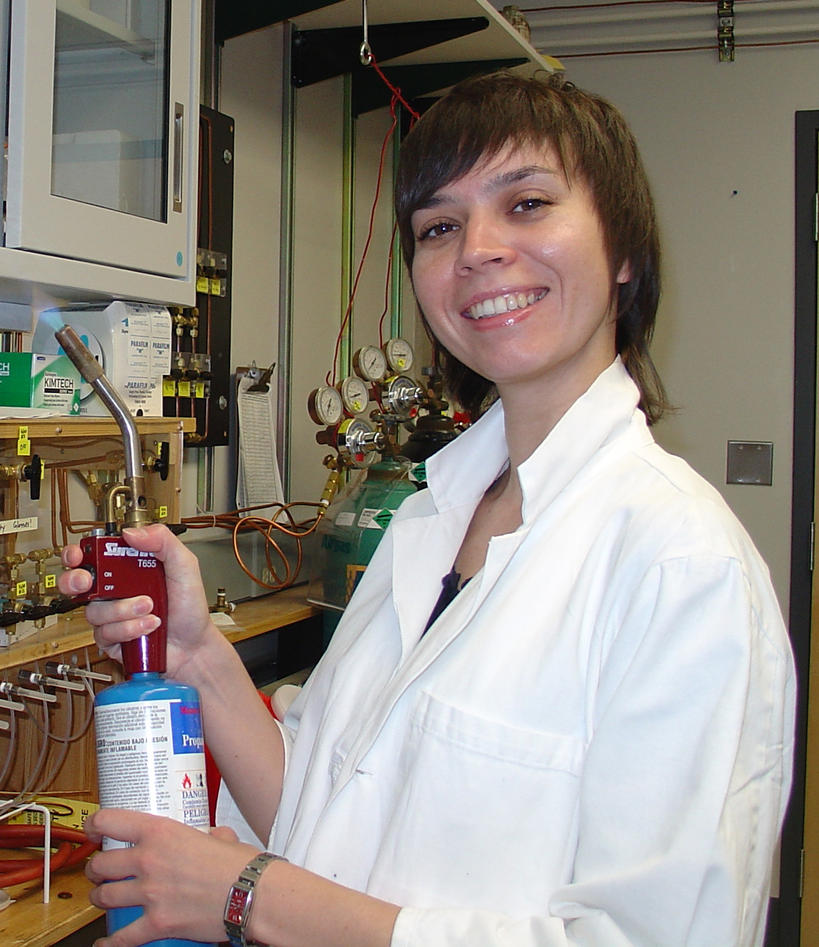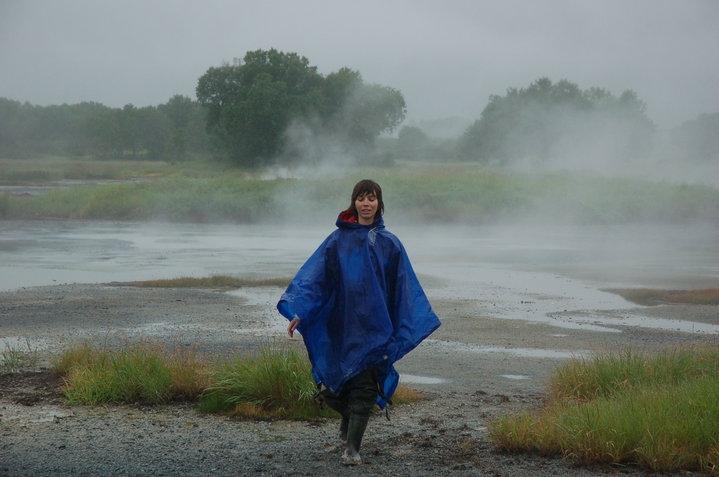Collaboration is win-win
Russian microbiologist Anna Perevalova is visiting CGB for a few months via a Yggdrasil grant from the Research Council of Norway.

Main content
Perevalova is a researcher at the Winogradsky Institute of Microbiology at the Russian Academy of Science (INMI). There she is a member of a research group that is studying thermophilic microbial communities. The group is isolating new organisms to identify novel metabolisms, physiologies and genomes.
Not only does such work lead to better understanding of the extreme ecosystems where these organisms live, but it may also identify interesting enzymes that may be relevant for industrial applications such as bio-degradation. The INMI researchers have the good fortune of being able to regularly sample from the hot springs of Kamchatka in addition to other terrestrial hot springs and deep-sea vents around the world.
INMI researchers now have access to the complete genomes for the thermophilic micro-organisms they have obtained and are starting on their analyses. They are currently analysing the connection between the presence of certain genes of interest, in particular hydrolytic enzymes, and the parameters of growth for the organisms on polymeric substrates and/or their corresponding activities.
Since completing her diploma work, Perevalova has been involved in studies of thermophilic microbial communities. She specialises in the cultivation and isolation of anaerobic thermophilic and hyperthermophilic archaea, and says that microbe hunting has become one of her favourite occupations!
She has developed considerable competency as a molecular ecologist and works on the development and application of culture-independent techniques to the investigation of thermophilic microbial communities. Perevalova explains that combining genomics with environmental microbiology is a rapidly growing field that offers unique opportunities to learn information about the evolutionary forces acting on natural microbial communities.
During her time here at CGB Perevalova would like to expand her skills as a microbiologist by learning new approaches in fields of biochemistry and bioinformatics. Perevalova explains that the goals for her stay are:
- To gain experience in applying proteomics tools to study protein-complexes and whole genome expression profiles in some thermophilic archaea.
- To develop skills in cloning, expression, purification and characterization of enzymes.
- To perform transcriptome-profiling of selected functional genes related to differential growth conditions using real-time quantitative PCR (Taqman assay).
- To learn more about the massively parallel sequencing technologies (GS-Flx; Illumina platform from Illumina, Inc.) for genomics- and transcriptomics-based studies.
CGB is currently focusing on these techniques. Perevalova hopes to develop knowledge and skills for the similar work she is undertaking on thermophilic archaea.
Perevalova’s stay at CGB is not her first visit to Bergen. She was previously funded for a couple of 2-month visits during her PhD in 2005 and 2006 on INTAS project. She worked then with Professor Nils-Kåre Birkeland at the Institute for Biology. She also met many of the microbiologists now working at CGB during these visits. Perevalova returned to Bergen to give a talk during the Thermophile conference Birkeland organised in autumn 2007.
Perevalova says that she enjoys travelling with her work. Networking is important in microbiology because different labs have specialised in different techniques and have different equipment pools. She hopes that her visit to CGB will open up future possibilities and strengthen the collaboration between INMI and CGB as well as the Department of Biology at UiB.
Yggdrasil
http://www.forskningsradet.no/no/Utlysning/ISMOBIL/1253969030529

